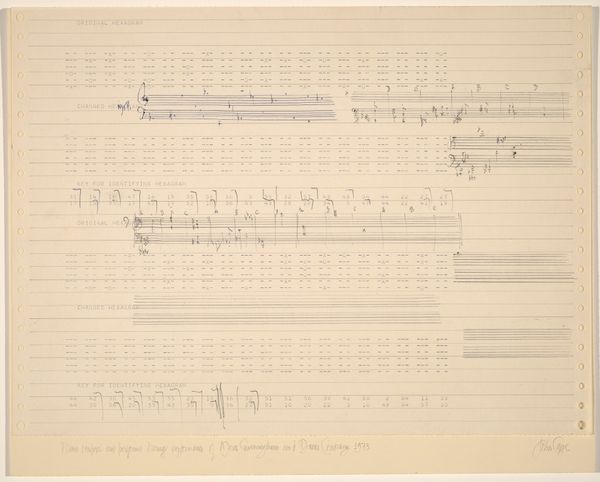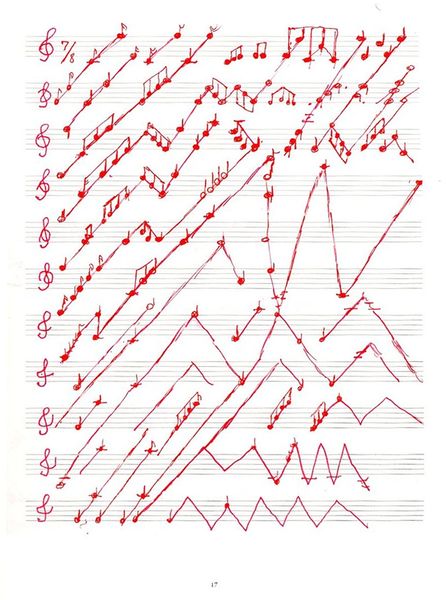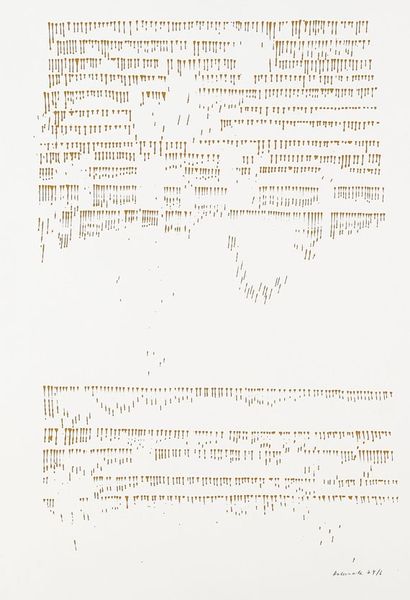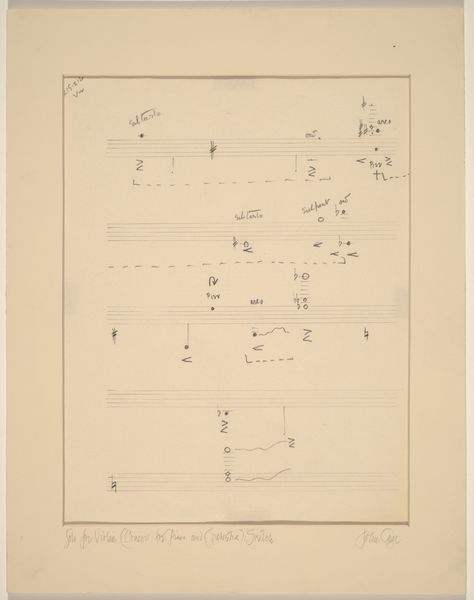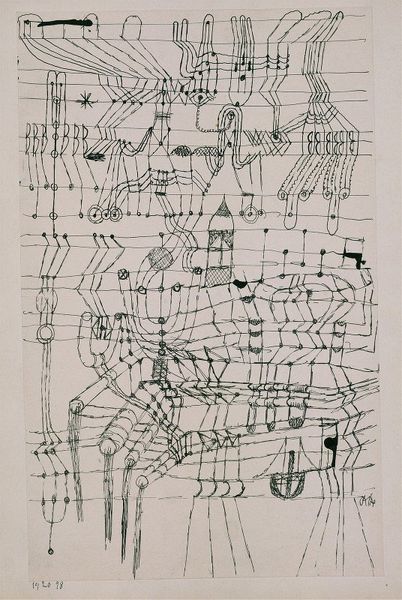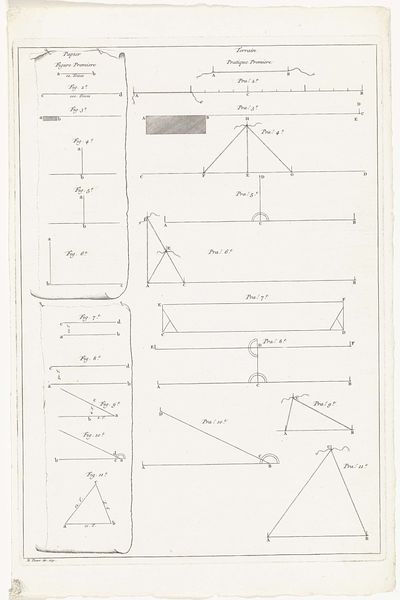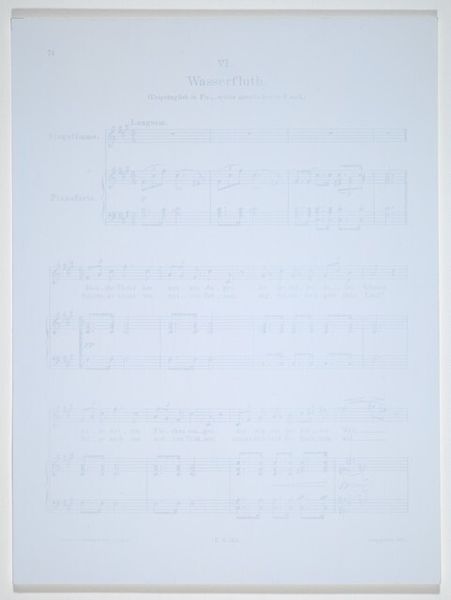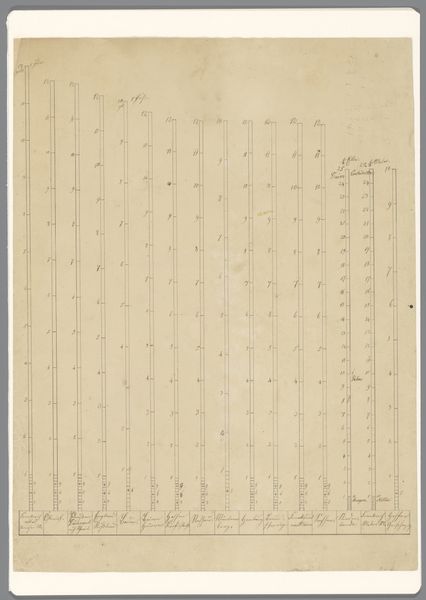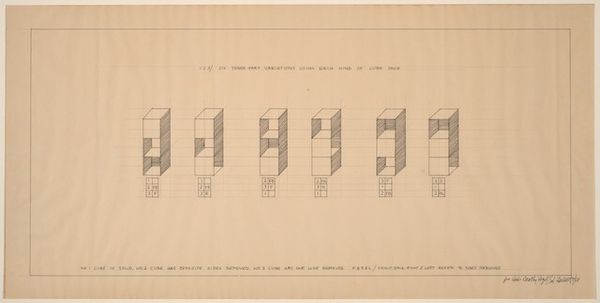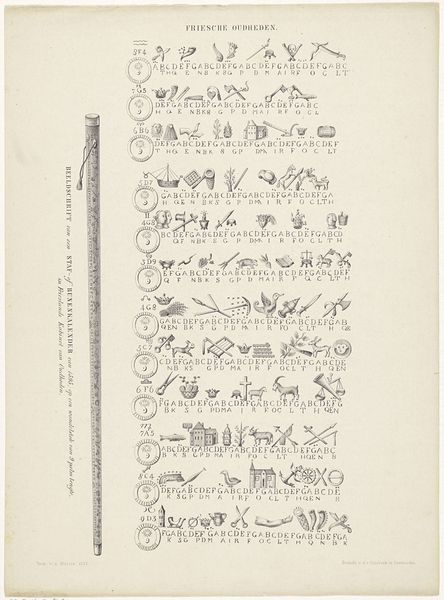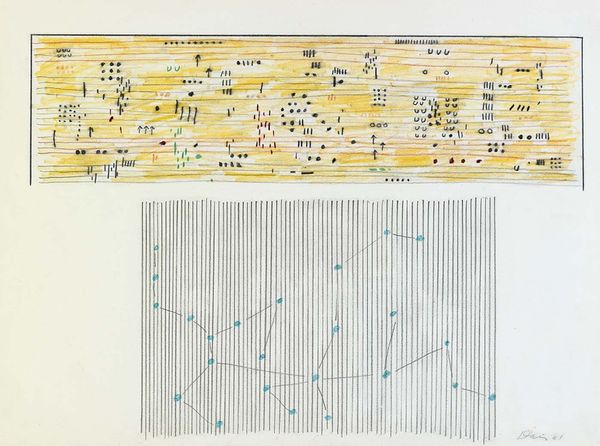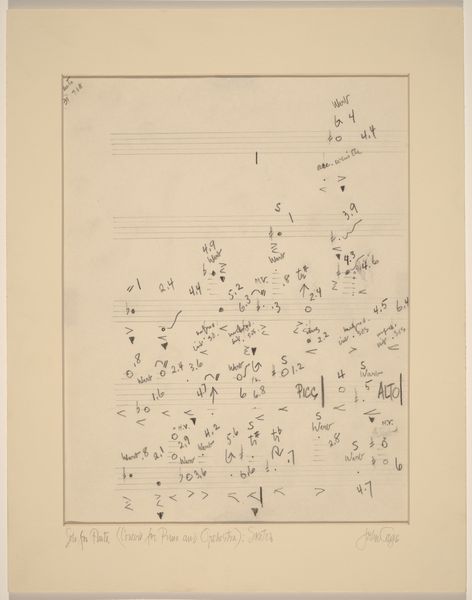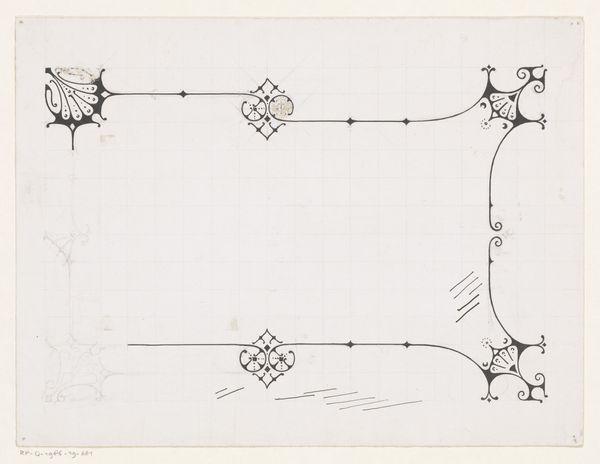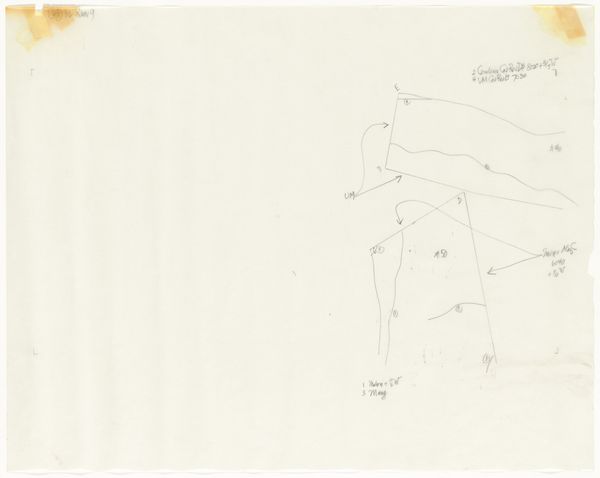
drawing, paper, ink, pen
#
drawing
#
script typography
#
conceptual-art
#
hand drawn type
#
hand lettering
#
paper
#
ink
#
geometric
#
black-mountain-college
#
abstraction
#
pen work
#
pen
Dimensions: overall: 27.9 x 43.2 cm (11 x 17 in.)
Copyright: National Gallery of Art: CC0 1.0
Curator: Here we have John Cage's "Atlas Eclipticalis (Mixer Manipulation)," a work that looks almost like a blueprint or a page of strange sheet music. It's rendered in ink on paper, with careful, almost technical pen work. What do you make of it? Editor: It's strangely calming, isn't it? A quiet explosion of delicate marks, all suspended on the page like notes waiting to be played. I feel a curious blend of the scientific and the spiritual gazing at it. Curator: Cage was deeply interested in both. The Atlas Eclipticalis project involved transcribing star charts into musical notation, connecting the celestial with the earthly and material. He was very interested in how charts like that affected our production of music. Editor: Ah, like a system looking for meaning, even where there may not be one initially. There's such care evident in each stroke, too. The way each number and glyph has its own distinct personality, floating along the lines. Curator: Exactly! This piece challenges the conventional boundaries between art, science, and music production. The "Mixer Manipulation" aspect highlights the human hand and chance operations in Cage's process—the deliberate act of creation and intervention with a celestial data set. Editor: The hand of the maker is quite palpable, though it also manages to have a rather austere visual restraint. Is this typical of how Cage merged these interests? Curator: Precisely. He saw musical composition as less about personal expression and more about setting up conditions for sound to occur. His interest in the materials of music-making itself—the charts, the ink, the paper—emphasizes the construction of art over its reception, if that makes sense. Editor: Absolutely. I'm now seeing those delicate lines as constraints as much as opportunities for some kind of expression. I wonder what kinds of sounds he hoped for here. Curator: Or what sounds he allowed! And by interrogating his own choices around material constraints in the creation of the piece, he gave license for unforeseen directions the piece may go. Fascinating, right? Editor: Absolutely. A star chart as a recipe for an indeterminate symphony… that's just delicious. Curator: It’s interesting how this challenges conventional production methods as well. Thank you.
Comments
No comments
Be the first to comment and join the conversation on the ultimate creative platform.
